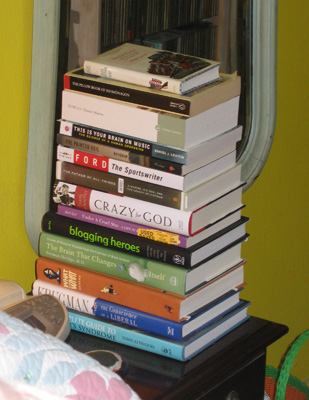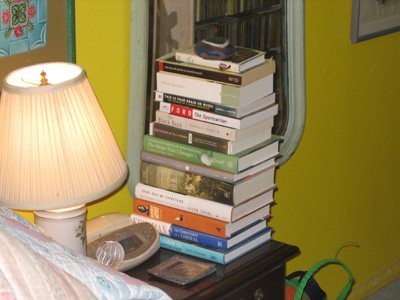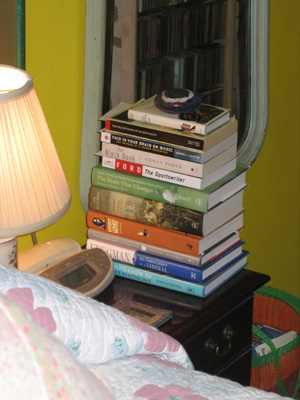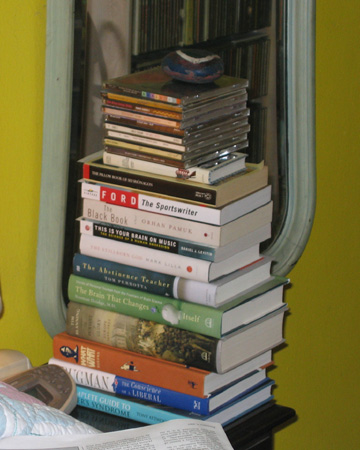What I'm Reading/In the Book Review
Wednesday, December 19th, 2007In the spirit of the season, I’ve cheated like mad. Two books that I’ve been reading for so long that even you’ve gotten sick of them — referred to for weeks now as “Blanning and Pamuk” — have been withdrawn from the pile, because I’ve almost finished reading them. I shall certainly read nothing else until I do finish them. Which means, more or less, that I’ve just taken a snapshot of books that I’m not reading.
Not yet. Not yet officially. (I am well into The Sportswriter.)
I’ve almost finished listening to What Is the What, but there, for some reason, my conscience intervenes. The book stays until the seventeenth disc plays. (Or is at least inserted into the Discman.)
There are four new titles. One of them is a promotion: Maugham’s The Painted Veil. This is the third of three minor novels that I know to have been turned into major motion pictures, and if the other two — Theatre (Being Julia) and Up at the Villa — are any indication, the novel will probably turn out to be a good deal more pallid than the movie. It’s just like cuisine, really; we demand more interest today. It’s almost arresting that Maugham should be providing Hollywood with such fertile armatures.
The other three are Crazy for God, Under a Cruel Star, and Blogging Heroes. More about these titles anon.
As for this weeks Book Review:




